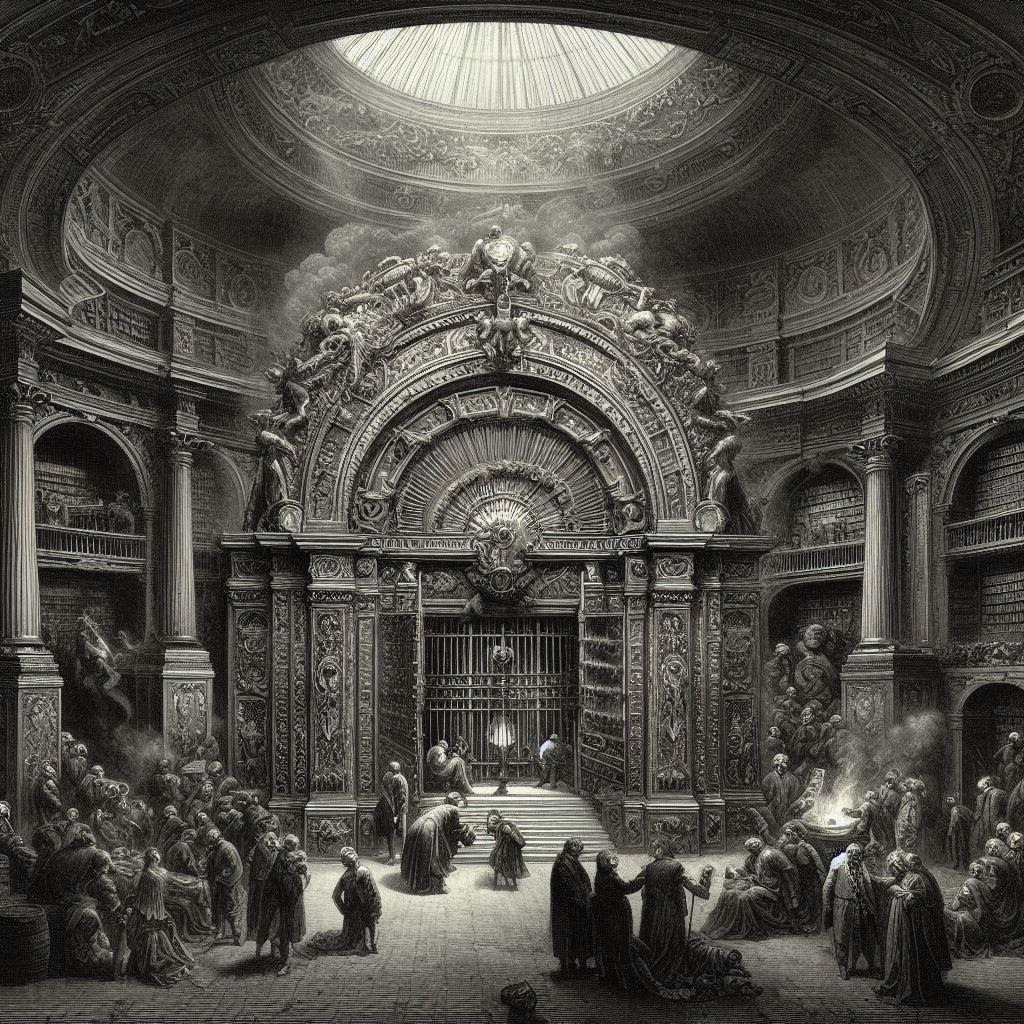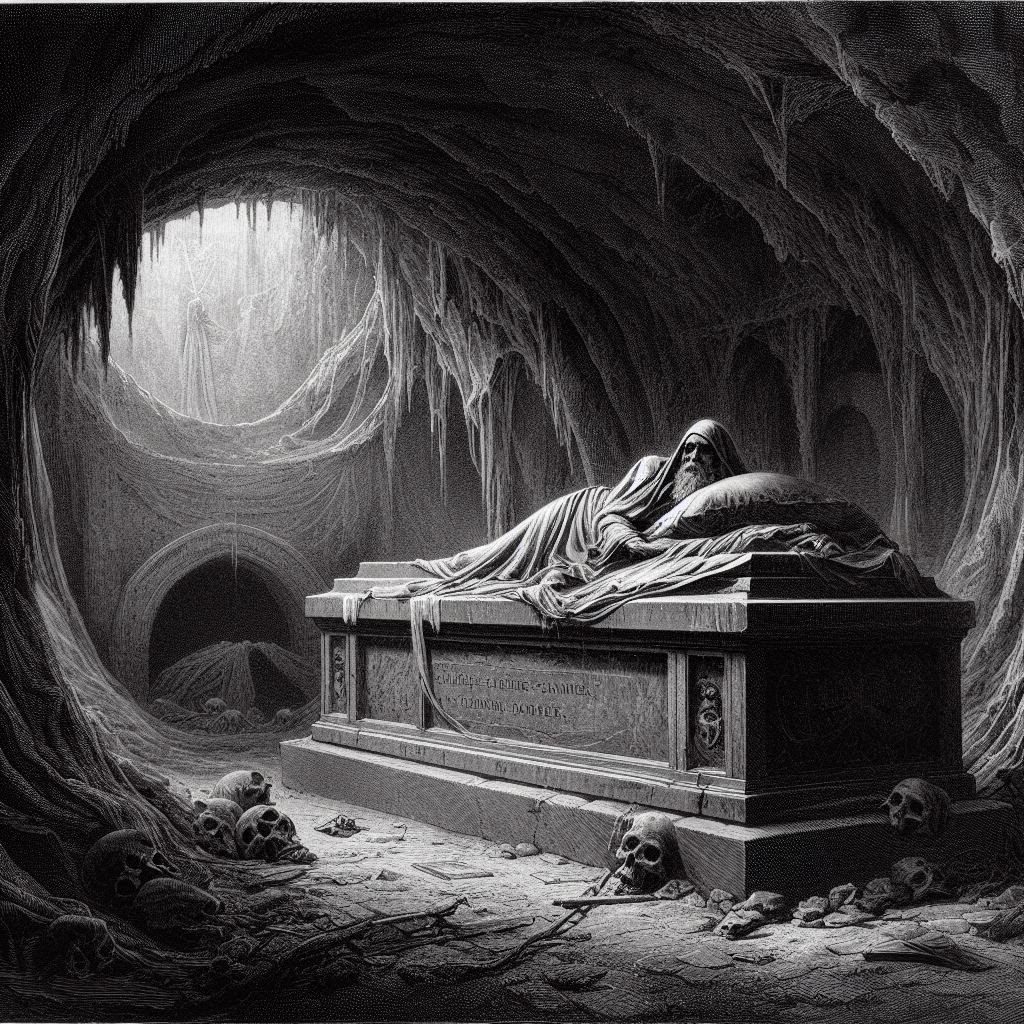Wajue are reptiles roughly the size of a sheep when full-grown. In the wild, they use their forepaws to dig dens on south-facing hillsides. Wajue mate for life, and each pair has its own den. Dens are often clustered closely together for mutual defense, and wajue take turns standing watch to warn of approaching danger. If they sense a threat they will emit a loud yelp which alerts the clan.
Wajue are opportunistic creatures, as likely to snack on rodents or birds as they are to eat fruits or fungus they find on the forest floor. They not above scavenging other creature's kills. Markedly clever, they are known to set ambushes and lie patiently in wait for unwary prey. They have been known to dig their way into henhouses, and many farmers view the wild ones as nuisances. In some places they offer bounties.
Their social behavior has made domestication a relatively straightforward process, and tame wajue often fill the role of both cat and dog for many Shan. They are excellent at pest control, being able to dig after vermin and pounce swiftly on landing birds. Their instincts make them natural sentries. Often they are used to guard grain silos both from pests and prowlers. Grain is one of the few things wajue do not eat.
Tame wajue have sometimes been exported outside of Shanguo. While they are not common, they can be found in eastern towns or even the trade cities of the north. But the wild ones are only found in the hills of Shanguo. Wolves, tigers and snow leopards will fight them but not feed on them. Bears and zhao will eat them if they are hungry.
Zhao will eat just about anything that size, unless they are well-trained. These winged reptiles were once common in the river valleys of Shanguo. Their appetite for small farm animals led to a campaign against them. Nests were discovered and destroyed. It has been a long time since any of the fliers have been spotted in the wild. But many eggs were taken back to Hei Chao, for domestication.
The zhao is unusual in that it is capable of carrying a human while flying-- a small human, at least. There is a definite weight limit to what they can carry, so zhao riders tend to be on the smaller side-- maidens, youths, midgets. Although its scales offer some protection, the zhao is not suitable for direct combat. Zhao riders serve as scouts, sentries, and couriers. Being able to bypass the long ground journey to maintain lines of communication has been critical to the war effort thus far.
Tame zhao are conditioned to accept human presence from the moment of hatching. Those raised at Hei Chao are the only living ones known to exist, and the breeding pool is dangerously low. The Shan would pay handsomely for any eggs found in the wild. Of course, the Huo might well pay more.
The keening cry of the sheng echoes through the densest forests and most forbidding slopes of Shanguo. Bipedal and surefooted, these herbivores can navigate terrain that would leave most creatures bewildered. They are uniquely suited for the steep rocky slopes, their thick soles shielding their feet while providing excellent traction. Their senses are keen, and their feet can pick up tremors in the earth, alerting them to the presence of creatures miles off. Their spatial awareness and agility allow them to pass through woodlands with swiftness and even stealth, flitting among the trees like gray ghosts.
The sheng are sacred to the Shan, who believe that their ancestors sometimes reincarnate in this form. The hunting of these beasts is punishable by death, and only those of the Shan bloodline are allowed to ride them. For a long while this law was hardly necessary, for the beasts will not easily bend their necks to strangers, but must be raised from the shell to accept the smell of particular humans and their close kin. These days there are enemies who would pay dearly for sheng eggs, and the nests must be closely guarded.
The use of sheng in mountain warfare should not be underestimated. Both as mounts and as pack animals, sheng allow for quick movement across terrain that would bog down man or horse. The ability to deploy armies from Hei Chao swiftly across treacherous mountain trails has saved the realm from canid invaders from the west countless times in the past. Now it is used to harry and confound the wooden soldiers of the east in brutal hit-and-run strikes.
There are other large reptiles in Shanguo but only these have been tamed by men. None are known to prey on humans, but this does not make them harmless. The large duckbill, for instance, grows up to fifty feet long and has been known to capsize boats if they come too close to it. Hornbrows, stonepates, clubtails and spearflanks should all be treated with caution if approached in the wild.
The canids say that such beasts were far more widespread long ago, but a race of serpent-men slew most of them.











